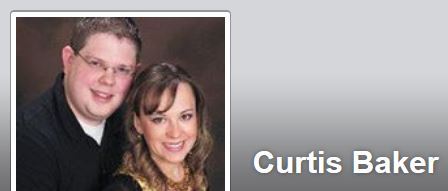 By: Curtis Baker
By: Curtis Baker
One of the great historical figures in the history of the Church of Christ is a man by the name of David Lipscomb. I realize his name will not be familiar to most who read this article, but his story is a good lead in to our discussion on the book of Amos.
David Lipscomb was a dedicated preacher of the gospel in the Tennessee area during the period around the Civil War. Lipscomb was dismayed by what he saw happening among his brothers in Christ, as brothers from the North took up arms against fellow brothers in the South. Lipscomb saw this as a devastating sign that the church was not who she was supposed to be. However, when the war was over, and the South was plunged into poverty, Lipscomb took on a role that even he probably didn’t expect.
One of the problems after the Civil War was a disregard of the churches in the South by the churches in the North. The North remained prosperous after the war, but the South was devastated as their means of production had largely been taken away from them. Lipscomb pleaded with his brothers and sisters in the North to send aid to their fellow churches in the South, but his pleading largely fell on deaf ears. As so often happens, politics had trumped brotherly love.
Because of this, Lipscomb, as a southerner, became somewhat of a prophet to the churches of the North. He warned them that their neglect of their poor Christian brothers and sisters would not go unnoticed. Unfortunately, his words largely fell on deaf ears yet again.
The book of Amos, our third of twelve Minor Prophets, has a very similar plot to the story I have just told you. Amos is a southerner, a resident of Judah, and he is chosen by God to go to the northern kingdom of Israel to preach against their corruption. It is likely true that Amos was chosen because of his rugged character. Amos was a shepherd, as well as a keeper of trees. He knew how to make a living off the hard work of the land. Amos was a no nonsense kind of guy, and that was needed for the kind of message God wanted preached.
What was Amos’ message? It is condemnation of the northern kingdom of Israel for their corruption, and more specifically, their neglect of their own poor. You see, Israel had grown wealthy while the attention of the Assyrian Empire was preoccupied with other regional disputes. This allowed wealth to grow in the northern kingdom of Israel, and as is all too often the case, as wealth grows, so does corruption. Amos is God’s warning to his own people about what is happening in their society.
The book opens by situating Israel among the various nations of the Ancient Near East. Amos announces God’s judgment on six different nations before finally coming to the two kingdoms of Israel and Judah. Counted among the nations are Damascus (Syria), Gaza (Philistia), Tyre, Edom, Ammon, and Moab. What is the purpose of this? I believe it is to demonstrate that Israel is no different from the nations surrounding them. Rather than standing out as a light among the nations, they have become just like them. As Amos says about Israel in 2:6- “They sell the righteous for silver, and the needy for a pair of sandals. They trample on the heads of the poor as upon the dust of ground and deny justice to the oppressed.”
With this in mind, this raises an important question for us to consider: Why does the Bible, and Amos in particular, have such a sensitivity for the needs of the poor? This is a significant question, and unfortunately one that we will have to delay until next week. But for now, it is well enough to notice Amos’ criticism of Israel–the people of God are no different than the ungodly nations around them. Each Christian must decide if that could be true of them as well.
(Don’t forget to join me for A Message From the Heart radio program Sunday evening at 8:00pm on KJAK 92.7FM, or streaming live at www.kjak.com)
(curtisbaker@hotmail.com)
Write to: P.O. Box 157, Slaton, TX 79364

